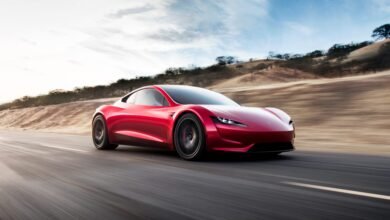Meta Claims Victory Over OpenAI in Talent War

▼ Summary
– Meta CTO Andrew Bosworth denied Sam Altman’s claim that Meta offers $100M signing bonuses to OpenAI employees, calling it dishonest and exaggerated.
– Bosworth clarified that high compensation is only for a few senior leadership roles in Meta’s new AI team, not the broader AI talent market.
– Meta CPO Chris Cox stated the company will focus on entertainment and social connection rather than productivity tools like OpenAI and Google.
– Jason Rugolo, CEO of Iyo, sued OpenAI over the “io” trademark, denying Altman’s claim that it was retaliation for a failed investment or acquisition deal.
– Runway CEO Cristóbal Valenzuela announced plans to expand generative AI into gaming, aiming to help developers create games faster, similar to its impact in Hollywood.
Meta executives have fired back at OpenAI’s claims about aggressive talent poaching, calling Sam Altman’s $100 million signing bonus allegations misleading. During an internal company meeting, Meta’s leadership dismissed the figures as exaggerated while confirming they’ve successfully recruited several OpenAI researchers.
Andrew Bosworth, Meta’s Chief Technology Officer, addressed employees directly, stating Altman’s comments distort reality. “The market is competitive, but not at the level Sam suggests,” Bosworth remarked. He clarified that substantial compensation packages apply only to select senior roles within Meta’s specialized AI teams, not across the board. The executive also hinted at more OpenAI talent joining Meta soon, though specifics remain confidential.
The discussion highlighted Meta’s strategic divergence from competitors. Chris Cox, Chief Product Officer, emphasized Meta won’t chase ChatGPT’s productivity-focused approach. “We’re doubling down on social connection and entertainment, areas where Meta naturally excels,” Cox explained, outlining the company’s differentiation strategy. Despite Meta AI’s billion monthly users, engagement trails behind ChatGPT, with many interactions tied to Ray-Ban smart glasses functionality.
Meanwhile, a separate trademark dispute has put OpenAI under scrutiny. Jason Rugolo, founder of audio startup Iyo, secured a temporary restraining order against OpenAI’s use of the “io” branding for its hardware division with designer Jony Ive. Rugolo denies allegations that his lawsuit stems from failed investment talks, insisting it’s about preventing market confusion between his upcoming Iyo One headphones and OpenAI’s project. “This isn’t about revenge, it’s about protecting our brand identity,” Rugolo stated, revealing his company has secured significant funding to compete independently through 2026.
In gaming innovation, Runway CEO Cristóbal Valenzuela revealed plans to expand generative AI into interactive entertainment. Following success in film production, including contributions to Amazon’s “House of David”, the $3 billion startup is developing AI-powered game creation tools set for release this year. Valenzuela noted gaming studios are adopting AI faster than Hollywood initially did, seeing potential to dramatically accelerate development cycles.
The tech talent wars continue making waves, with multiple OpenAI researchers confirming moves to Meta’s Zurich lab. In a humorous nod to the compensation rumors, one recruit publicly denied receiving a nine-figure signing bonus. Tesla also saw executive shakeups, with Elon Musk reportedly dismissing key manufacturing and HR leaders.
As AI competition intensifies, companies are carving distinct paths, whether through talent acquisition, product differentiation, or legal battles over intellectual property. The coming months will reveal whether Meta’s recruitment successes and entertainment-focused AI strategy can challenge OpenAI’s productivity dominance, while startups like Iyo and Runway aim to disrupt hardware and gaming sectors respectively.
(Source: The Verge)






2 Comments